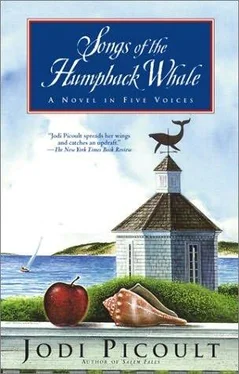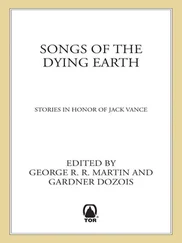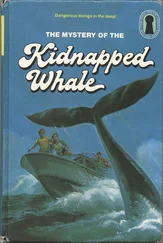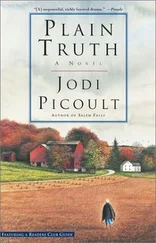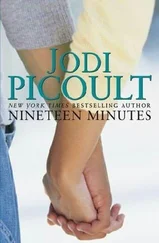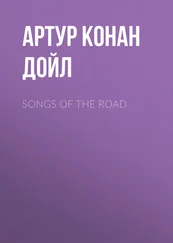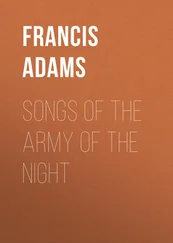Oh, God, I think, so this is what it can be like. She tastes of sassafras and cinnamon. I move my tongue between her lips, over the neat barricade of her teeth. She opens her eyes then, and she smiles. My mouth, on hers, smiles too. “You look different up close.” When she blinks, her eyelashes brush against my cheek.
I press my palms against the back of her head and her shoulders. I tear my mouth away from hers, gulping in the stale air of the lily pond, and fall to my knees in front of her. I’ve forgotten we’re in a boat, and it pitches from side to side, so that we both have to keel ourselves. I kiss her along the line from her ear to her neck and I move one hand from her back to her breast. Jane loosens her arms from around my neck and grabs onto the gunwale of the rowboat. “No,” she says, “you have to stop.”
I sit back obediently on the low rowboat seat, watching the ripples we’ve made in the pond. We are left staring at each other, flushed, with all that has happened hovering in between. “You just say the word,” I murmur, breathless, and I lightly let go.
Windy meets me on the shore of the weathered little beach at Gloucester. He hands me a neoprene wet suit and a yellow Helly-Hansen cap. Although he is a garrulous man by nature, in the midst of this throng of television and radio correspondents, he says nothing. He waits until I have stepped into the fifteen-foot inflatable Zodiac, until he has revved the outboard, and only then does he smile at me and say, “Who the hell would have expected Oliver Jones to be my guardian fucking angel?”
Windy McGill and I worked together at Woods Hole before it was fashionable to be involved in the cause of whales. We were the two gofers for the prestigious scientists; we were expected to fit in our own doctoral research around the time spent analyzing data or getting coffee for these other biologists. We discovered quite by accident that we had both been graduated from Harvard the same year; that we were both researching tidal communities for our doctorates; that we had been born a day apart at the same Boston hospital. It almost came as no surprise that our research turned in the same direction: towards humpbacks. Of course we’ve taken different tacks. Windy steers clear of whale songs; he’s worked on different methods of identification of humpbacks. At this point, he’s credited for the Provincetown research that is used to catalog entire generations of whales.
Windy pulls a bottle out of his pocket-cough medicine-and offers me a swig. I shake my head, and lean back against the bubbled bow of the little boat. Zodiacs tip at the drop of a hat, but I manage to strip and get the wet suit over my body. Windy watches me out of the corner of his eye. “Getting a little thick around the middle, Oliver?” he says, patting his own ribs. “Goddamned cushy California jobs.”
“Fuck you,” I say good-naturedly. “Tell me about this whale.”
“Her name is Marble. White markings on her neck and her fluke. Three years old. Got herself all tangled up in a gill net some asshole left behind.” He squints, and adjusts the rudder to the left. “I don’t know, Oliver. It took us two days just to find her out here. She’s testy and she’s tired, and I don’t know how much longer she’ll hold on. I’ll tell you this,” he says, “I’m glad you’re here. If I’d known you were back in Massachusetts, I would’ve called you in a minute.”
“Bullshit. You hate it when I steal your thunder.”
Windy and I discuss our intended course of action. The most pressing problem is knowing where exactly the gill net has become entangled on the whale. Windy’s primary observation-“around the jaw”-isn’t precise enough. Once this has been determined, it will be much easier to cut away the net. The assessment, however, is the most dangerous aspect of a whale rescue: one slap of a fluke or a fin is deadly. Last year, in northern California, a colleague was killed when he dove beneath a whale to determine the points of entanglement.
As we get further away from the Massachusetts shoreline, I begin to feel the prickling to which I am accustomed; the heady excitement of the unexpected. Few humans have seen it, the look in the eyes of a beached whale one has redirected towards the black ocean. Few humans understand that relief transcends verbal communication; that gratitude is not limited to our genus and species.
I spot the second Zodiac before Windy and direct him towards it. Four students are crowded into the little raft, along with Burt Samuels, a biologist who is getting too old for this. Twenty years ago, this man would command us to scrub sea lion shit from decaying study tanks and we would jump at his beck and call. And now we are defining the pace.
Marble rolls miserably on her side, feebly fanning the water with her dorsal fin. One of the students calls out to Windy-apparently three whales have been hovering nearby, waiting to learn the fate of Marble. One circles closer and sidles up to Marble, who rolls onto her belly. The second whale disappears beneath the water, unfurling the edges of its fluke. Gracefully, gently, it strokes Marble’s back with its tail. It caresses her several times, and then sinks and vanishes.
“I’m going in,” I say, pulling a mask over my face. We stop alongside the second Zodiac, which is slightly larger and which has an oxygen tank, ready to go. I adjust the harness and check my gauges, and then with the help of one of the students, I sit on the edge of the inflatable boat. “On three.” The oxygen mists against my skin. I look out through the mask, that familiar perspective of being on the inside of a fishbowl. One. Two. Three.
The rush and light of the world sizzles and then smoothes underwater. I adjust to breathing below the surface of the water; and then I blink and concentrate on finding the green gill net tangled about this massive wall of whale. I hear Marble moving, pendulous, creating unnatural currents. She sees me out of the corner of her eye, and she opens her mouth, creating a rush of seaweed and plankton from which I have to kick away.
I circle her tail first. I move quickly and steadfastly, noting mentally where the net is tangled (right fin, clear of the fluke). I hold my breath when I swim beneath her, praying to a God I am not sure I believe in. She is over thirty feet long, and she weighs well over fifty thousand pounds. Do not dive, I whisper. For God’s sake, Marble, do not dive.
I lie beneath her on my back, floating motionless. I know that I should get out of the way as quickly as possible, but what a view. It makes you hold your breath, such beauty. Right there, the creamy white of her belly, nicked with scars and barnacles and grooved at the jaw like a zinc sinkboard.
What I would give to be one of them. For a little while, I could trade in my legs for a massive form, a mighty tail. I could run with them along the mountains of the ocean, calling out, understanding. I could sing in the quiet of night with absolute certainty that there would be someone waiting to hear me. I could find her; I could mate for life.
With three sharp kicks of my fins I swim up to Marble. Keeping my distance, I mark where the gill net has tangled in her mouth, caught no doubt across the baleen. I do not think we will be able to cut it entirely without compromising our own safety. Most likely we will have to rip the net so that she is at least free, and then Marble will have to adapt. Whales have an incredible propensity for adaptation. Think how many have spent years living with broken harpoons in their thick skin.
When I surface I am pulled into the second Zodiac by two young marine biology students. I roll onto my stomach on the floor of the boat, which shivers like jello with every twitch of Marble’s body. I pull the mask off, unhook the harness with the tank. “It’s tangled around her right fin and pretty much woven through her baleen,” I say. Then I notice the television camera looking down at me. “What the hell is this?”
Читать дальше
